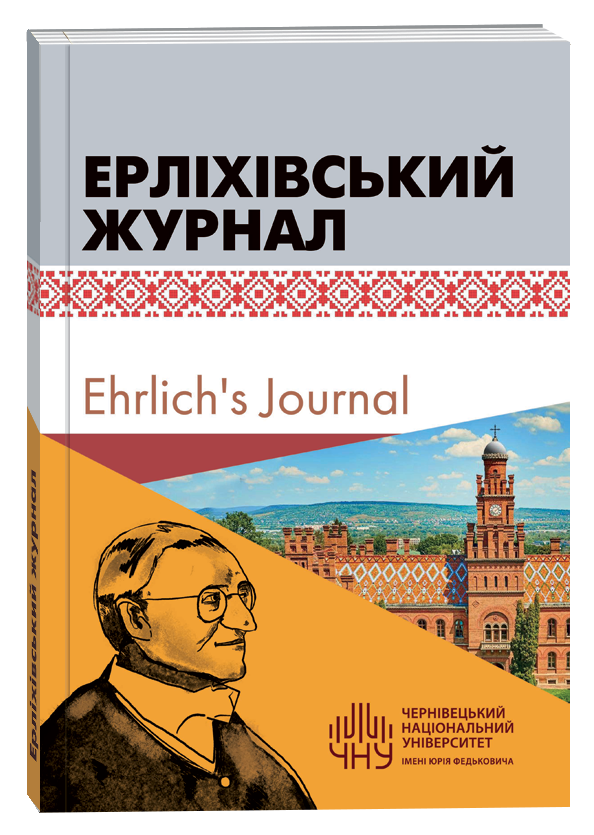GENERAL PRINCIPLES OF EXECUTION OF JUDGMENTS OF THE EUROPEAN COURT OF JUSTICE IN TAX CASES
DOI:
https://doi.org/10.32782/ehrlichsjournal-2025-13.01Keywords:
sources of law, judicial precedent, application of law, EU tax law, enforcement of judgments of the European Court of Justice, preliminary rulings, tax harmonizationAbstract
The article is devoted to the study of the general principles of the execution of the decisions of the European Court of Justice in the field of taxation. The problems that arise when applying the case law of the European Court of Justice by tax authorities and courts of EU member states are analyzed. It has been established that, regardless of any legislative intervention aimed at ensuring the compliance of national legislation with European legislation, courts and tax authorities are obliged to implement the decisions of the European Court of Justice at the level of application of the law. That is, to refuse to apply provisions recognized by the European Court of Justice as incompatible with EU law. The features of the implementation of decisions of the European Court of Justice, the procedure for adopting which is determined by Articles 258 and 267 of the Treaty on the Functioning of the EU, are revealed, and a classification of previous decisions is also carried out. A key aspect of the analysis is the issue of eliminating the consequences caused by the previous application of defective provisions of the law. In this context, the implementation of the judgment of the Court of Justice of the EU means the possibility of initiating special procedures aimed at excluding from regulation decisions adopted on the basis of provisions recognized by the Court of Justice of the EU as incompatible with EU law. The decision of the Court of Justice of the EU not only does not affect the validity of the provisions of national legislation, but does not even create an erga omnes effect. The article also examines the impact of the case law of the European Court of Justice on national tax systems. It is indicated that such influence can be direct or indirect. Direct effect is the result of case law relating to a specific provision of national law. Indirect influence is the result of court decisions, regardless of the method of their adoption, made in similar cases under the laws of this country (strong indirect influence) or other countries (weak indirect influence).
References
Devereux M. Taxes in the EU New Member States and the Location of Capital and Profit. University of Warwick, IFS and CEPR , 2006, 27р.
Babin I. Features of the Application of the Decisions of the European Court of Human Rights by Ukrainian Courts in Tax Cases. DANUBE. 2020. Vol. 11, № 1. Р.75–89. https://doi.org/10.2478/danb-2020-0005.
Malherbe Ja., Malherbe Ph., Richelle I., Traversa E. The impact of the rulings of the European Court of Justice in the area of direct taxation 2010. Directorate General for Internal Policies Policy Department : Economic and Scientific Policy. Brussels, European Union, 2011. 172 p.
Towards a Homogeneous EC Direct Tax Law. Ed. Cecile Brokelind. 2007. 462 p.
Șandru Daniel-Mihail. Caracterul obligatoriu al deciziei preliminare pronunţate de Curtea de Justiţie a Uniunii Europene pentru instanţe și autorităţi naţionale. Revista Română de drept European. 2019. № 4. Р. 44–55.
Бабін І. Особливості застосування рішень у податкових справах Європейського суду справедливості в Республіці Польща. Ерліхівський журнал. 2025. № 12. С. 5–10. DOI: https://doi.org/10.32782/ehrlichsjournal-2025-12.01.
Półtorak N. Komentarz do art. 259 Traktatu o funkcjonowaniu Unii Europejskiej. Kornobis-Romanowska D., Łacny J., Wróbel A. (red.). Traktat o funkcjonowaniu Unii Europejskiej. Komentarz, 2012. Tom 3. WKP. URL: https://sip.lex.pl/komentarze-i-publikacje/komentarze/traktat-o-funkcjonowaniu-unii-europejskiej-komentarz-tom-iii-art-587326783.
Case C-101/91, Commission of the European Communities v Italian Republic [1993] ECLI:EU:C:1993:16. рara 24.
Mączyński D. Bezpośredni wpływ orzecznictwa Trybunału Sprawiedliwości Unii Europejskiej na stanowienie prawa podatkowego w Polsce (wstęp do badań). Ruch prawniczy, ekonomiczny i socjologiczny. 2019. Rok LXXXI. Zeszyt 3. Р. 23–27. https://doi.org/10.14746/rpeis.2019.81.3.2.
Case C-69/85, Wünsche Handelsgesellschaft GmbH & Co. v Federal Republic of Germany [1986] ECLI:EU:C:1986:104.
Ahlt M., Szpunar M. Prawo europejskie. Warszawa : C.H. Beck, 2011. 309 p.
Šadl U. National courts and the effectiveness of EU law. National Courts and EU Law. New Issues, Theories and Methods. Cheltenlham-Northhampton : Edward Elgar Publishing, 2016. Р. 68–103.
Witte B. de. The preliminary ruling dialogue: three types of questions posed by national courts. Witte B. de, Mayoral J.A., Jaremba U., Wind M., Podstawa K. (eds.). National Courts and EU Law. New Issues, Theories and Methods. Cheltenlham-Northhampton : Edward Elgar Publishing, 2016. Р. 15–25.
Pistone P. The impact of ECJ case law on national taxation. Bulletin for International Taxation. 2010. № 64 (8/9). Р. 412–428. https://doi.org/10.59403/2d46twd.
Case C-105/14, Criminal proceedings against Ivo Taricco and Others [2015] ECLI:EU:C:2015:293.








